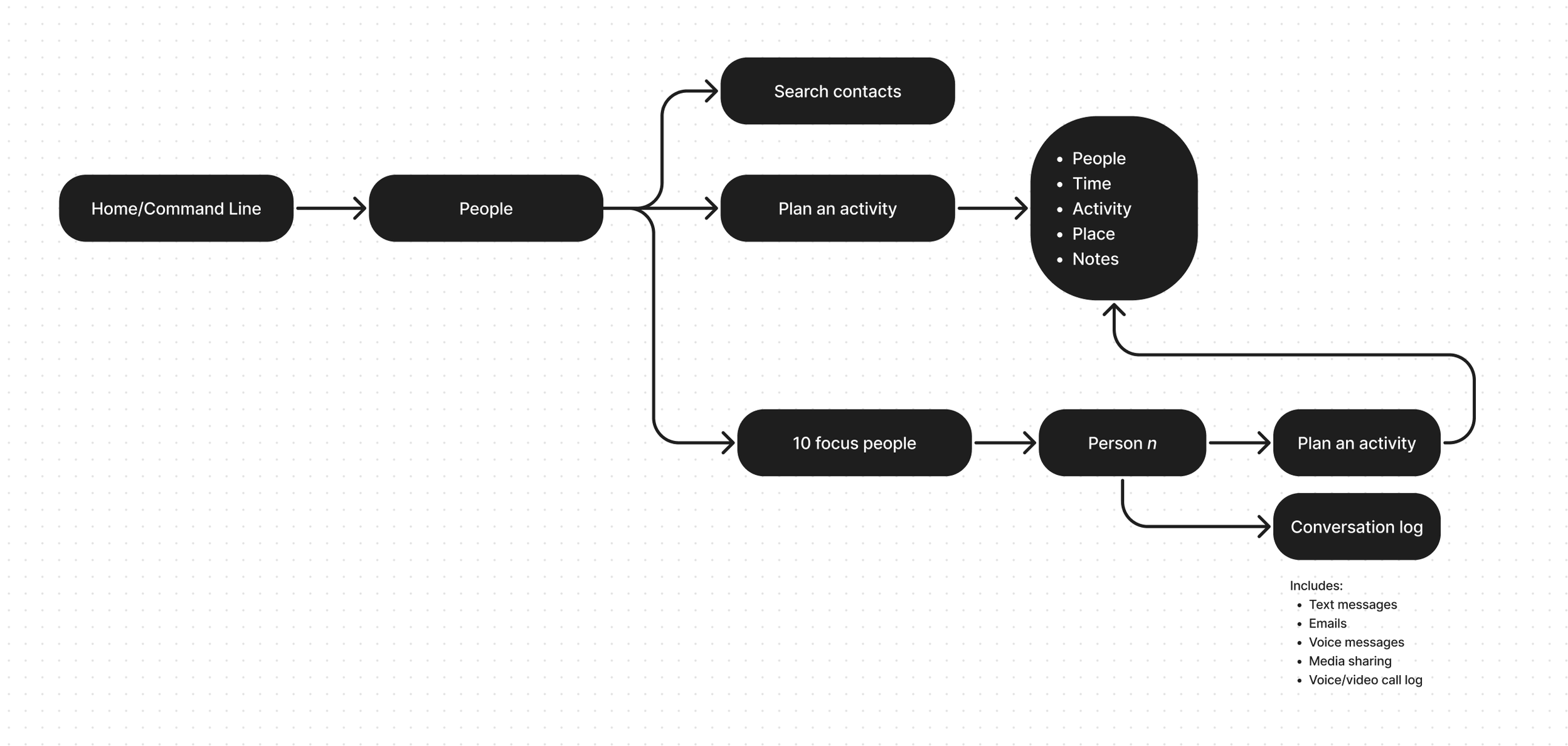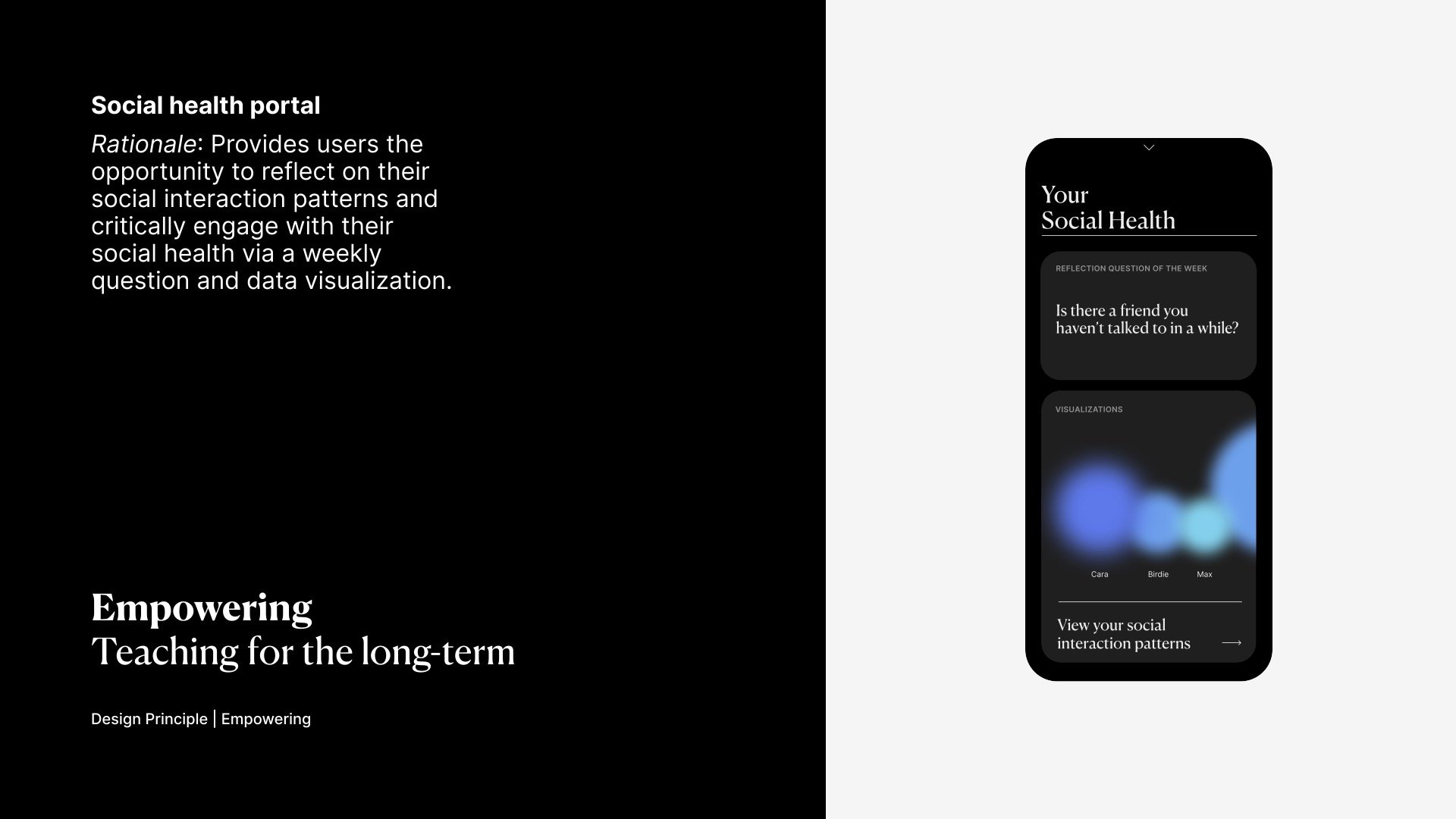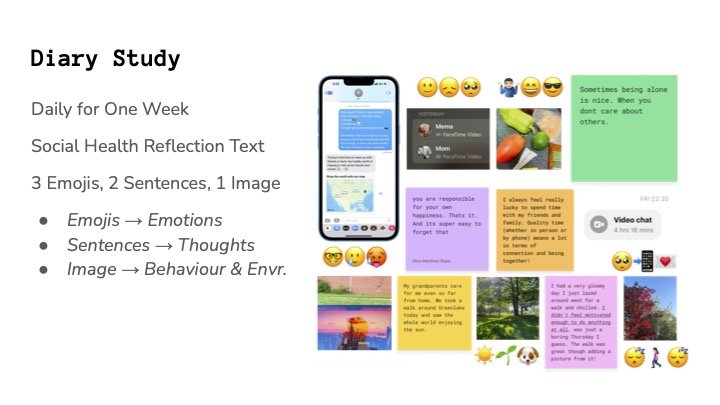nOS:
A People-Centered Operating System
A paradox of our age is that we are both more connected than ever and yet suffering from deep disconnection. Information is at our fingertips, instant communication, whether text, voice, image or video, with our friends and family is possible without regard to distance. At the same time, we are living through what has been called a loneliness “epidemic,” with increasing numbers of people feeling the pain of social isolation. Technology has created tremendous possibilities for connection and yet, judging by the outcome of how people feel, it has not realized its potential.
In User Friendly, their book on how certain design choices had lasting influences, Cliff Kuang and Robert Fabricant discuss iOS, Apple’s iPhone operating system and the choice to organize it around apps.
“Imagine if instead of apps, our smartphones were built around the relationships we care about—if, instead of opening an app to connect with who we love, we simply remained connected with those we loved [...] Who knows how much easier, how much more satisfying, our digital lives might be if the governing metaphor for smartphones were one of human connection, rather than programs.”
Who knows? What if? Inspired by this provocation, we offered a challenge to Vivian Cheng, Nico Martinez Rojas, Adam Moss and Aavishii Patel Saxena, a team of graduate students from the Master of Human-Computer Interaction and Design at the University of Washington for a speculative design capstone project. What would an OS that had social connection as its primary purpose look like? How would it function? How could it help people strengthen their social health? The team dug into the hard questions and the result is nOS: a people-centered operating system.
Work Products
nOS: Overview video
In this short video, the nOS team demonstrates the key features of the operating system, highlighting how a phone could prompt greater care and attention to important relationships and facilitate offline interactions.
NoS: USER FLOWS
See how nOS functions in a series of prototype user flows: onboarding, activity planning and social health.
NOS: Process Slides
This deck covers the team’s process in developing nOS, from early desk research and gathering insights from user research, to developing design principles and crafting a final prototype.
NOS: Research Phase
See the interim report the team prepared at the conclusion of their research phase, including findings and design takeaways from their user research.



